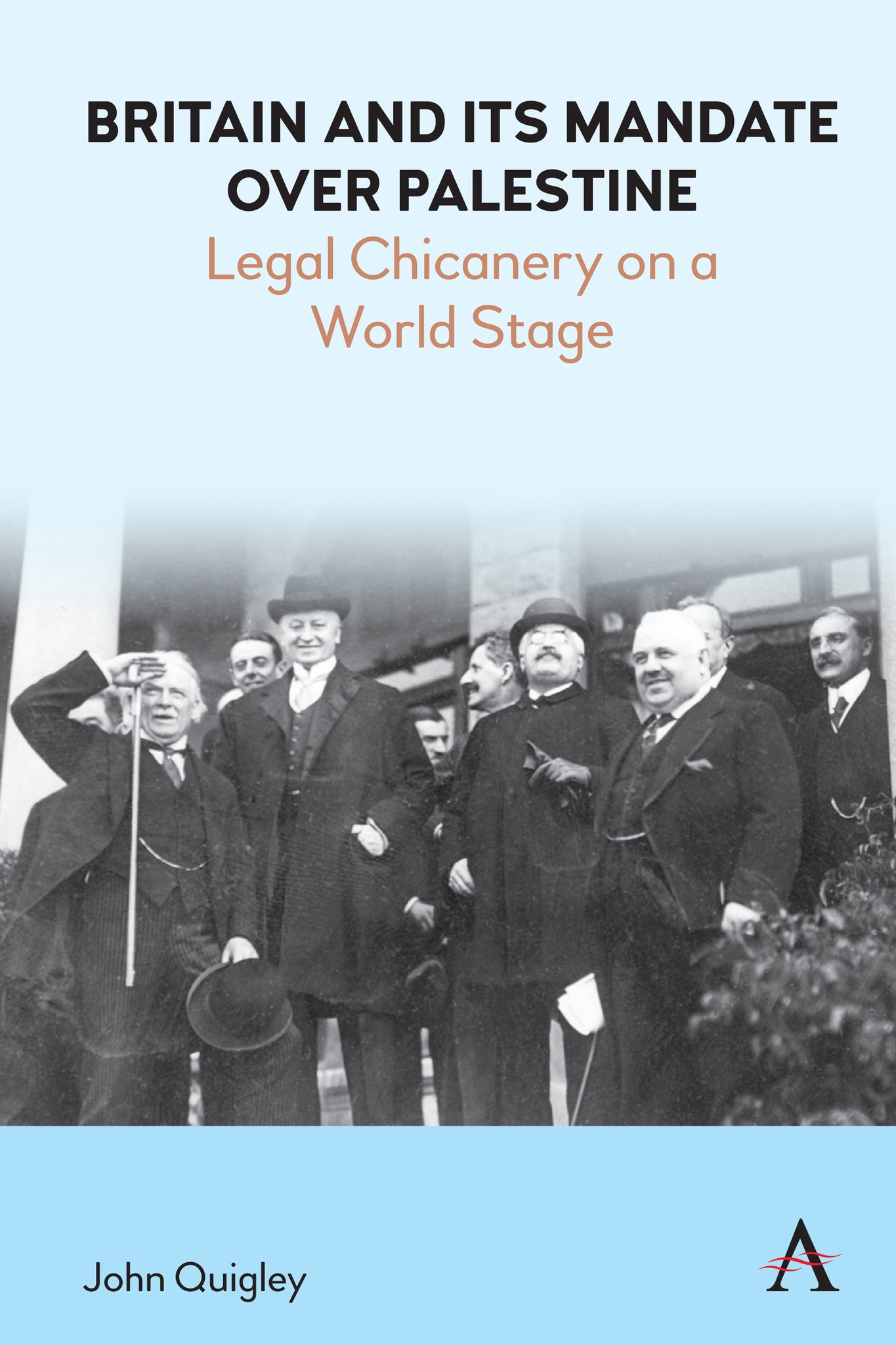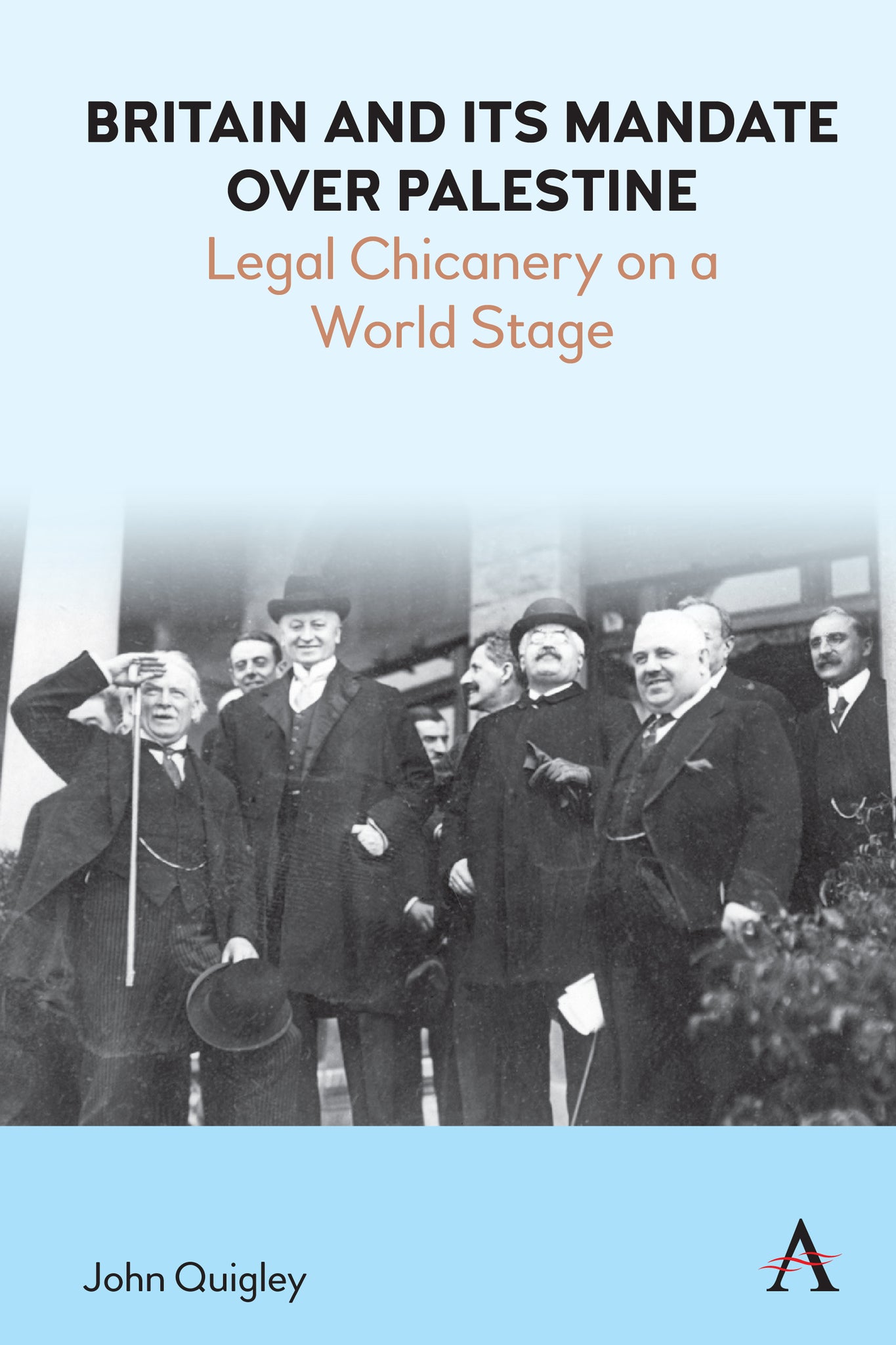We're sorry. An error has occurred
Please cancel or retry.
Britain and Its Mandate over Palestine

Some error occured while loading the Quick View. Please close the Quick View and try reloading the page.
Couldn't load pickup availability
- Format:
-
13 September 2022

Analysis of Britain’s role in Palestine has proceeded on the assumption that Britain was lawfully in control of the territory. Analysts differ on whether what it did was proper, but they agree that Britain had a lawful mandate and that through the League of Nations, and that the international community advocated for Jewish territorial rights in Palestine. This analysis, though widely shared, is incorrect. Britain had no territorial rights itself to govern Palestine. It was there by dint of force of arms. The mandate it had over Palestine was initiated unilaterally. The mandate was not given to Britain by the League of Nations. The League of Nations had no authority over Palestine and, in particular, nothing it could give to Britain. The document that Britain composed for the governance of Palestine was never approved by the League of Nations. When, in 1947, Britain had to explain the United Nations its legal status in Palestine, it resorted to distorting the historical facts, in an effort to make it appear it had been in Palestine lawfully.

LAW / Legal History, Public international law: territory and statehood, LAW / International, HISTORY / Middle East / Israel & Palestine, Middle Eastern history, Public international law: international organizations and institutions

“Quigley’s study showing that Britain’s Mandate for Palestine, which endorsed the Balfour Declaration, was based on military conquest and not on law or the authorization of the League of Nations raises serious questions about the legitimacy of the State of Israel and the integrity of Britain’s continued support for Israel” —Christopher John Robert Dugard, Professor Emeritus, Leiden University, Netherlands.
Preface; Setting the Stage: Was Britain’s Rule in Palestine Legal?, The Balfour Declaration Is the Focal Point for the Legal Situation of Palestine; The Balfour Declaration Was a Binding Commitment to the Jewish People; The Jewish National Home Meant a Jewish State; The Balfour Declaration Was Issued to Affirm Jewish Rights in Palestine; The Paris Peace Conference Raised Jewish Statehood to the International Level; Britain’s Allies Made the Balfour Declaration an International Commitment; Britain’s Allies Endorsed Jewish Rights; Britain Took on Palestine Because of the League’s Mandate System; The League of Nations Protected Palestine’s Arab Population; Britain Was Given Palestine by the League of Nations; The League of Nations Put the Palestine Mandate into Legal Force; The Peace Treaty with Turkey Legalized Britain’s Status in Palestine; The Palestine Mandate Document Was a Treaty between Britain and the League; The League of Nations Required Britain to Implement the Balfour Declaration; The Palestine Mandate Document Implemented the League Covenant; The Palestine Mandate Document Recognized Jews as a National Group; The Palestine Mandate Document Bound Britain to the Balfour Declaration; The International Community Committed Itself to the Balfour Declaration; Britain Held Legal Status in Palestine; The United Nations Charter Carried Forward a Jewish Entitlement to Statehood; Postscript: Why History Matters; Documents; Annex; Notes; Bibliography; Index



